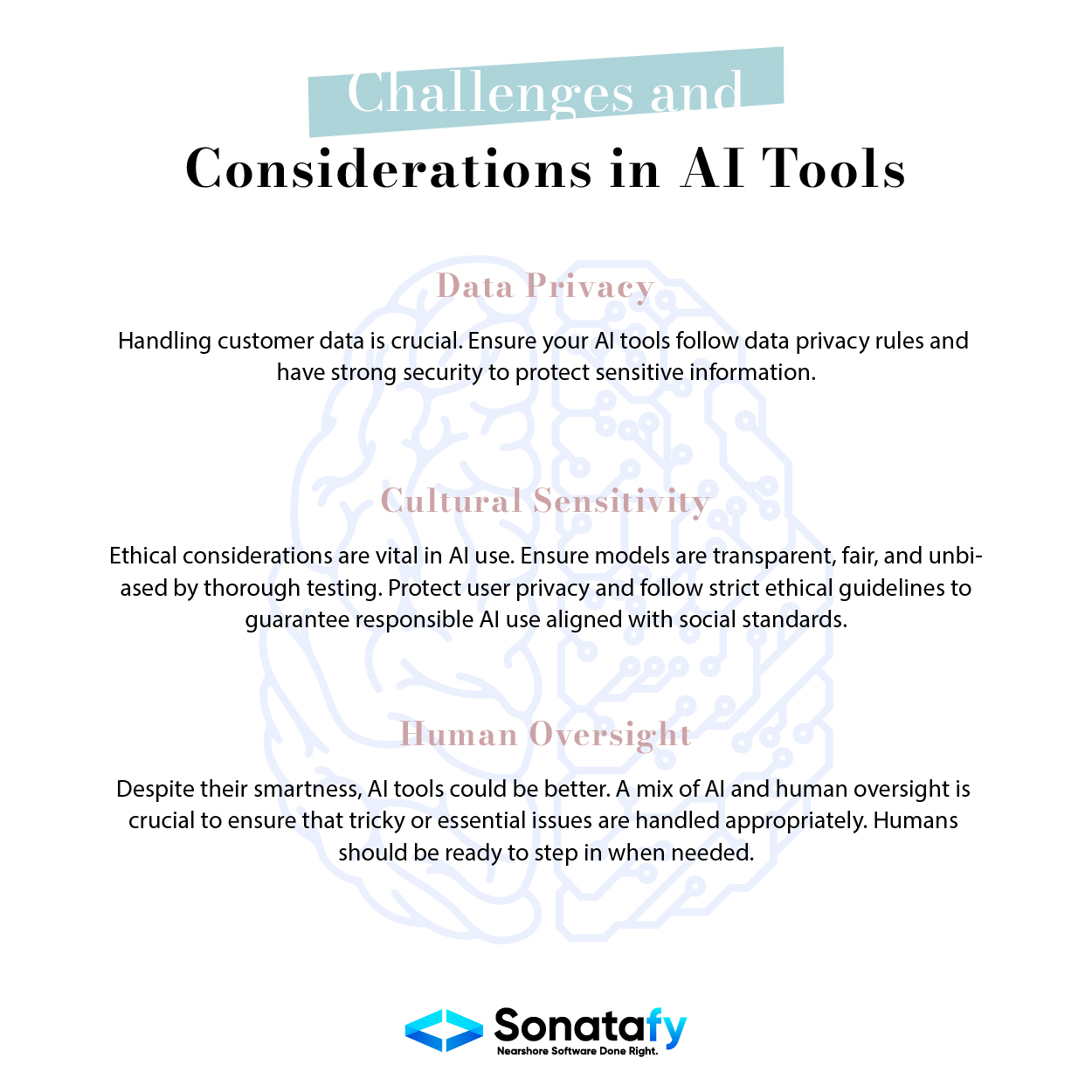Successful businesses must provide exceptional customer service, especially for multilingual customers. This can be challenging, as companies have to deal with multiple time zones, languages, and cultures. That’s where artificial intelligence (AI) can help. Multilingual customer service is being transformed. In this article, we look at how AI is changing it.
Customer Support’s Evolution
Customer service isn’t the same as it once was. From merely phone calls and emails, a lot has changed. Businesses are focused on enhancing the consumer experience through AI technology. Helping people promptly and accurately is still the primary objective, but new methods are being used, particularly for multilingual clients.
AI in Multilingual Support
AI tools are great at handling complex tasks and have exceptional multilingual capabilities. This technology uses sophisticated machine learning (ML) and natural language processing (NLP) techniques to interpret and answer customer queries in multiple languages. Here are a few essential things AI does in this area:
- Language Translation: AI systems can instantly translate customer messages, eliminating language barriers to international business transactions.
- Emotional Analysis: Understanding the tone and emotions underlying customer interactions is essential. AI’s ability to translate emotions from different languages allows support staff to respond empathetically and appropriately.
- Automated Responses: AI chatbots can answer common questions in different languages. This means they can help immediately, freeing human agents to deal with the trickier stuff.
AI Tools for Multilingual Customer Support
Natural Language Processing (NLP)
NLP is super important for AI tools used in customer support for different languages. It helps machines understand and respond to human language naturally. Thanks to NLP advancements, AI can get idioms, slang, and cultural differences, making interactions feel more human and work better.
Machine Translation
The times have changed, and businesses no longer depend only on human translators. Today, AI-powered machine translations have risen to near-human levels. Constantly learning from their experience, these programs enable accurate and culturally sensitive interpretations.
AI Chatbots
Artificial intelligence chatbots are transforming customer service. They speak many languages and are available 24/7. These chatbots understand and answer a variety of questions using NLP and ML. They’re great at handling simple FAQs and even the trickier troubleshooting stuff. This means faster responses and happier customers overall.
Implementing AI for Multilingual Support
Planning and executing carefully is essential when setting up AI tools to help customers in different languages. Here are a few steps to keep in mind:
Identify Your Needs
Before using AI, you must determine exactly what your business needs. Look at what languages your customers use the most and think about the questions that could be answered automatically. This way, you can pick the best AI tools that fit your needs perfectly.
Integration with Existing Systems
AI tools need to work smoothly with your current customer support systems. Whether it’s your CRM, helpdesk software, or communication platforms, ensure your AI solution can cooperate reasonably with what you already have. This will make things run more efficiently and give your customers a consistent experience.
Training and Continuous Improvement
AI tools need ongoing attention, training, and development; it doesn’t happen just once. Add new data regularly to improve the performance and accuracy of your AI models. To continue improving AI for us, we urge your customer service staff to provide feedback on how it works.
AI’s Benefits in Multilingual Customer Support
Enhanced Efficiency
AI makes multilingual customer support more efficient. AI tools can handle many questions simultaneously, so customers don’t have to wait long for help. This means happier customers who keep coming back.
Cost Savings
AI can help businesses save money by managing routine tasks. This is a win-win situation because it frees human resources to focus on challenging and important tasks.
Scalability
AI tools are great because they can expand your company without compromising quality. Whether your business is reaching new customers or dealing with busy seasons. AI can easily adjust to fit your needs.
Challenges and Considerations
Although AI has many benefits, knowing the potential challenges is essential. Here are a couple of things to consider.

Data Privacy
Handling customer data is crucial. Ensure your AI tools follow data privacy rules and have strong security to protect sensitive information.
Cultural Sensitivity
Ensure that AI tools are culturally sensitive and don’t misinterpret things that might upset customers. Keeping your AI models current is essential to accurately reflect cultural changes and nuances.
Human Oversight
Despite their smartness, AI tools could be better. A mix of AI and human oversight is crucial to ensure that tricky or essential issues are handled appropriately. Humans should be ready to step in when needed.
Real-World Applications and Success Stories
Let’s examine real-life examples and success stories to show how AI can improve multilingual customer support.
E-commerce and Retail
E-commerce sites work globally, so they need support in many languages. AI chatbots help customers in different languages, providing info on products, tracking orders, and handling returns. This quick help makes customers happy and lowers the number of abandoned carts. AI tools also look at customer feedback in different languages, giving ideas on improving products and services.
Travel and Hospitality
The travel industry has customers who speak different languages and have different cultural expectations. AI tools in this industry handle bookings, answer questions about destinations, and give personalized recommendations in many languages. This around-the-clock support improves the customer experience, which keeps people returning and leaving positive reviews.
Banking and Finance
Financial companies use artificial intelligence (AI) to support multiple languages , including account management, fraud detection, and loan application processing. AI chatbots handle simple questions, leaving human agents to handle more complicated problems. This combination of AI ensures that customers receive quick and accurate help, helping to build their trust and confidence.
AI Ethics for Customer Support
We must consider ethical issues as we continue integrating AI into customer service.
Transparency
Companies need to be transparent when using AI to help customers. Customers should know when dealing with an AI instead of a human. Being open about this builds trust and helps customers understand what to expect.
Bias and Fairness
We must ensure that AI systems don’t show favoritism toward any particular group and treat everyone equally. It’s crucial to keep checking and updating AI models to identify and correct biases so everyone gets fair treatment regardless of language or culture.
Accountability
Even though AI handles many customer interactions, businesses still need to take responsibility for the support they provide. It’s important to have humans overseeing things to deal with issues that AI might struggle with. By setting clear rules for when and how human agents should step in, we can ensure customers have a smooth experience.
Training Your AI: Best Practices
Training AI to help customers in different languages is an ongoing thing. Here are some excellent tips to make sure it works great:
Diverse Data Sets
Train your AI models with different data types, such as data from other languages, dialects, and cultures. The list of data points will also help AI process user queries more accurately.
Continuous Learning
Feed the AI models new data and feedback regularly to keep them current. This ongoing training will help the AI better understand and adapt to changing customer needs and language trends.
Human-AI Collaboration
Make sure to create a team where humans and AI tools work together. Teach your support team to use AI tools well and give feedback for improvement. This partnership between humans and AI will make your support system stronger and more responsive.
Future of AI in Multilingual Customer Support
The future of AI in helping customers who speak different languages looks promising. With all the exciting advances in artificial intelligence, machine learning, and natural language processing, we could see more advanced technologies that simulate real conversations. Companies that use this technology will be better able to meet the changing demands of their global customers.
Conclusion
Integrating AI solutions for multilingual customer assistance is critical for companies. These solutions can provide excellent language support using NLP, machine translation, and AI chatbots.
The potential for even more innovative and intuitive AI support is enormous as technology improves. Companies implementing these innovations will improve customer service and remain competitive globally.
Artificial intelligence (AI) can be valuable for meeting and exceeding customer expectations as demand increases. It guarantees a smooth and enjoyable experience for multilingual and multicultural customers.




